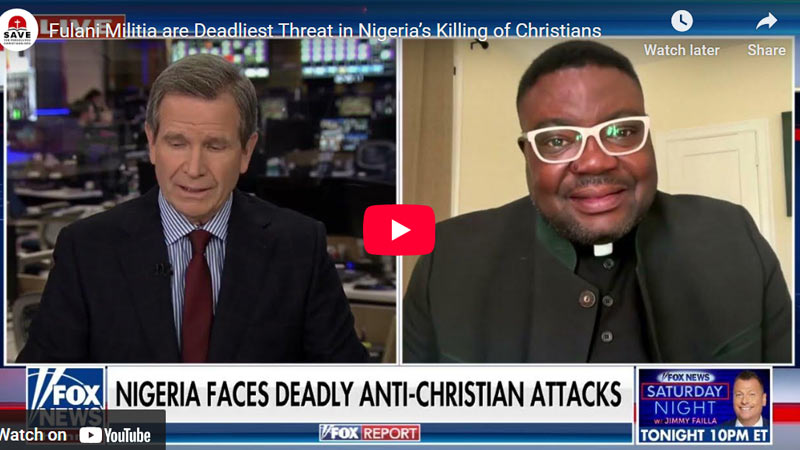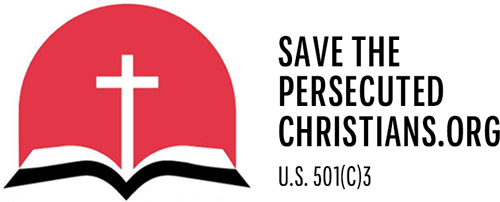Fulani Militia are Deadliest Threat in Nigeria’s Killing of Christians

For more than two decades, Nigeria’s Christians—especially in the country’s north and Middle Belt—have lived under the shadow of almost continuous violence. What began as sporadic attacks by Islamist extremists has hardened into a relentless pattern of killings, abductions, mass displacement, and land seizures that is tearing communities apart.
In a recent conversation, Rev. Fr. Remigius Ihyula, a Catholic priest from the Diocese of Makurdi in Benue State, described what this looks like on the ground. His diocese sits in Nigeria’s so-called Middle Belt, a region where the largely Christian south meets the predominantly Muslim north—and where a brutal struggle for land and power is being waged at the expense of ordinary villagers.
A War That Never Ends
Fr. Ihyula traced the escalation of violence back to the early 2000s, when Islamist extremists such as Boko Haram began attacking Christian communities in the northeast, especially in Borno State. Over time, the conflict metastasized. What began with bombings and assaults on churches evolved into a wider pattern of raids on rural communities, often carried out at night by heavily armed militants.
In the Middle Belt, many of these attacks are attributed to Fulani ethnic militias and other armed groups. They descend on farming villages with AK-47s, burn homes and churches, drive survivors from their land, and sometimes occupy the territory they have cleared. For the families who flee, there is rarely anything to return to.
“The killings don’t make headlines for long,” Fr. Ihyula explained, “but for our people, they never really stop.”
From Villages to Camps
The Diocese of Makurdi now supports large numbers of internally displaced persons (IDPs)—families who once lived quietly as farmers and traders but who now crowd into makeshift camps after losing everything. Many have been displaced multiple times, moving from one temporary refuge to another as attacks spread.
There is never enough food. Children miss years of school. Parents who once worked their own fields now depend on aid just to survive. The longer the crisis drags on, the more permanent this displacement feels—and the more tempting it becomes for militants or opportunistic elites to claim the abandoned land.
Fr. Ihyula and his team, through the diocese’s Foundation for Justice, Development and Peace, try to provide material support—food, shelter, schooling, trauma care—while also documenting what is happening. They collect names, dates, locations, and eyewitness accounts. In many cases, they can show a clear pattern: villages targeted again and again, church leaders threatened, and survivors pushed into destitution.
Abductions as a Weapon
If the burned villages and mass graves are one face of this conflict, the other is abduction. Nigerians—and the world—remember the Chibok schoolgirls taken by Boko Haram in 2014. But kidnapping has become a recurring tactic, used not only by Boko Haram but by bandit groups and Islamist factions across the north.
One of the most haunting cases is that of Leah Sharibu, abducted in 2018 from her school in Dapchi. While other girls were eventually released, Leah was kept because she refused to renounce her Christian faith. Years later, she remains in captivity—her story a symbol of countless others whose names are never known outside their own communities.
Fr. Ihyula noted that in addition to high-profile cases, girls and women from rural Christian communities are taken in smaller numbers—sometimes for ransom, sometimes forced into marriages or servitude. Some are trafficked across borders. Many are never found.
A Crisis of Justice and Impunity
Behind the statistics lies a deeper problem: impunity. Victims file complaints, churches document atrocities, local leaders plead for protection—but those responsible are rarely arrested, let alone prosecuted. Villagers see attackers return, armed and confident, knowing that nothing will happen to them.
This erodes trust in both state and federal authorities. “When people see that killers and kidnappers walk free,” Fr. Ihyula said, “they conclude that their lives don’t matter to those in power.”
The violence also exposes a dangerous double standard in international response. When terrorism targets Westerners, it is widely condemned. When entire Christian communities in Nigeria are slowly driven from their land, the world often looks away or reduces it to “farmer–herder clashes,” as if both sides were equally armed and equally responsible.
The Human Face of a Long War
For Fr. Ihyula, the crisis is not abstract. It is the faces of the children in the camps; widows who describe how their husbands were killed; parents who cannot bury their dead because it is too dangerous to return. It is the young people who grow up knowing only camps and conflict, with little hope of education or work.
Yet, even in this bleak landscape, the Church continues to serve as both refuge and witness. Priests and lay workers accompany communities through loss and trauma. They rebuild whenever possible. They bury the dead and comfort survivors. They carry stories of massacres and abductions to anyone willing to listen outside Nigeria.
What Can Be Done
A crisis of this scale will not be solved overnight, but Fr. Ihyula and others on the front lines point to some clear steps:
-
End impunity by insisting on real investigations and prosecutions for massacres and kidnappings.
-
Support local communities directly—through churches and trusted organizations that are present before, during, and after attacks.
-
Recognize the religious and ideological dimension of the violence instead of hiding behind neutral labels that obscure the targeting of Christians and other vulnerable groups.
-
Amplify stories like those from Benue and the Middle Belt so that displaced families are not forgotten once the headlines fade.
For the Christians of Nigeria’s Middle Belt, the war has been going on since at least 2001. Many of them have no memory of a truly peaceful time. The question now is whether the rest of the world will continue to treat this as a distant, inevitable tragedy—or whether we will finally listen to voices like Fr. Ihyula’s and act in ways that honor the dignity and courage of those who suffer.
